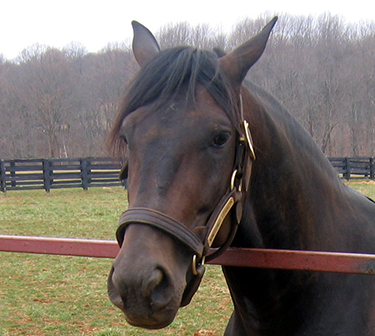Contact: Jeff Wolfe (609) 633-2954 E-Mail: jeff.wolfe@ag.state.nj.us
(TRENTON) – The New Jersey Department of Agriculture has quarantined properties in Hunterdon and Somerset counties after a horse developed highly infectious equine herpes myeloencephalopathy (EHM). EHM is the often deadly neurologic form of the Equine Herpes Virus (EHV-1) infection. No recent movement had occurred at the farm where the virus was reported prior to this case. The horse was moved into the isolation barn at a local animal hospital the evening EHM was confirmed. Both the horses at the original farm and the hospital are under quarantine.
Nine horses were being treated at the hospital at the time of the incident; several horses were exposed to the ill horse. Seven of these horses will be moved to a remote facility, which also will be placed under quarantine so the hospital can be cleaned and disinfected in order to reopen. Other than the initial case, none of the quarantined horses at either location are showing clinical signs at this time. Both locations are taking the necessary biosecurity precautions to limit the spread of the virus. Temperatures also are being taken twice daily on all quarantined horses.
“The Department took swift action to prevent the disease from spreading to other horses by enacting a quarantine, which stops movement of horses in and out of the properties and puts in place preventive measures to contain the virus,” said New Jersey Secretary of Agriculture Douglas H. Fisher.
The EHV-1 organism spreads quickly from horse to horse and can cause respiratory problems, especially in young horses, spontaneous abortions in pregnant mares, and the neurologic form of the virus can result in death. The incubation period of EHV-1 is typically 2-10 days. Clinical signs include respiratory disease, fever, nasal discharge, depression, cough, lack of appetite, and/or enlarged lymph nodes. In horses infected with the neurologic strain of EHV-1, clinical signs typically include mild incoordination, hind end weakness/paralysis, loss of bladder and tail function, and loss of sensation to the skin in the hind end. The virus spreads readily through direct contact with infected materials. While highly infectious, the virus does not persist in the environment for an extended period of time and is neutralized by hand soap, alcohol-based hand sanitizers and sunlight. The virus does not affect humans and other domestic animals, with the exception of llamas and alpacas.
Concerned owners should consult with their veterinarian prior to taking any action as the clinical signs of infection with the neurological form of EHV-1 (EHM) are common to many other diseases. EHM is a reportable disease in New Jersey. If an owner has a horse exhibiting neurologic signs or suspects Equine Herpes, they are directed to call their veterinarian immediately.
The NJDA Animal Health Diagnostic Laboratory provides testing for the neurologic form of EHV-1. For more information, visit www.nj.gov/agriculture/divisions/ah/prog/lab.html or call 609-406-6999.
To learn more about the New Jersey Department of Agriculture, find us on Facebook at www.facebook.com/NJDeptofAgriculture and www.facebook.com/JerseyFreshOfficial or Twitter @NJDA1 and @JerseyFreshNJDA.



